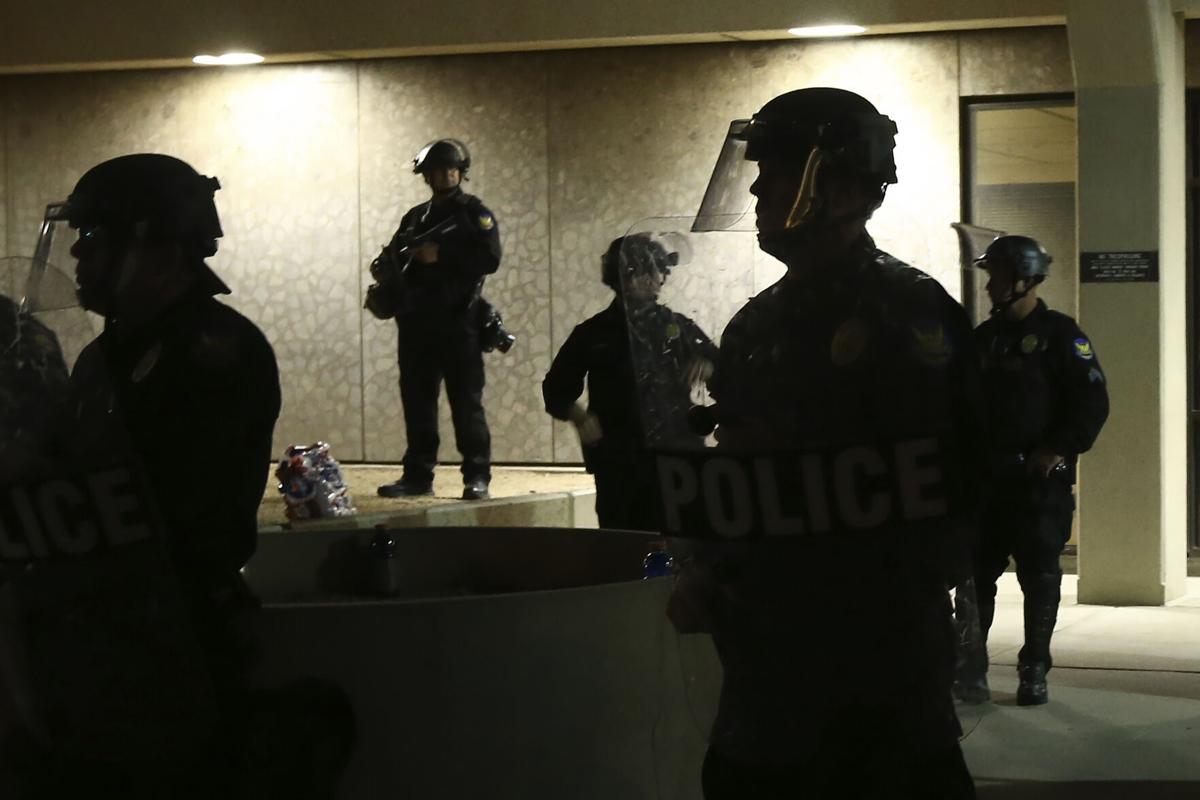PHOENIX — A controversial Arizona law that would restrict taking video of police will not take effect, at least not this year.
Rep. John Kavanagh told Capitol Media Services on Wednesday that he has been unable to find an organization willing to go to federal court to defend his legislation. It would make it a crime to take video of police activity within 8 feet without permission.
Violators would be subject to 30 days in jail and a $500 fine.
Attorney General Mark Brnovich, named as a defendant in the lawsuit, did not show up at a hearing last week.
So U.S. District Court Judge John Tuchi issued a preliminary injunction to bar the law from taking effect as scheduled on Sept. 24. And he set a Friday deadline to see if legislative leaders are willing to take up the fight that Brnovich would not.
“The Senate will not be pursuing an appeal,” Senate President Karen Fann said Wednesday.
And House Speaker Rusty Bowers said he sees no reason to intercede.
“There is a general feeling that the idea needs refining,” he said. “And I don’t think I am going to push any defense from the House point of view.”
So that leaves only Kavanagh, who crafted the measure and is a former police officer. And he said he approached various organizations that represent police officers, believing they would have an interest in having the law take effect.
“No takers,” Kavanagh said Wednesday of his effort.
“They looked to see if they could get some other groups,” he said, like those involved in legal matters. “But nobody was buying.”
Absent any effort to defend the law, that clears the way for Tuchi to permanently enjoin enforcement, effectively killing the measure.
What that leaves as an option for Kavanagh is re-crafting the measure when legislators convene in January. But he said the form that new version will take will depend on Tuchi’s final order — and what the judge says he finds legally unacceptable in HB 2319.
It remains unclear, however, how much discretion Kavanagh will have to find something that passes legal muster.
Tuchi, in issuing the preliminary injunction last week, said he believes that individuals have a First Amendment right to record police activity.
And he dismissed Kavanagh’s claim, made during legislative debate, that HB 2319 is necessary to prevent interference with or distractions of law enforcement.
“Arizona already has other laws on its books to prevent interference with police officers,” the judge wrote. “The court fails to see how the presence of a person recording a video near an officer interferes with the officer’s activities.”
One option for Kavanagh could be changing the distance to allow people with cameras to get closer.
He originally had proposed a 15-foot buffer.
“But I went to 8 feet because the U.S. Supreme Court said, with respect to First Amendment rights, keeping abortion protesters at 8 feet from clinic entrances was constitutional,” Kavanagh said. “So I thought that same distance would easily apply here.”
He said, though, collapsing the ban to a lesser distance makes no sense.
“From 2 feet, you can’t even capture the whole scene,” Kavanagh said.
“What are you going have, a shot of the person’s shoulder?” he continued. “What good is that?”
But distance is not the only concern raised by Tuchi.
“HB 2319 prohibits only video recording and does not address audio recordings or photographs taken from the same distance or device,” the judge pointed out. “Nor does it address persons who may be using their mobile phones for other purposes, such as texting.”
What that shows, Tuchi said, is that “the law’s purpose is not to prevent interference with law enforcement, but to prevent recording.”
Kavanagh said that’s easy enough to fix.
“If it’s only singling out people videotaping, then I could expand it,” he said of the scope of the law, barring anyone from being in that 8-foot bubble.
That, however, may not resolve the legal issues that Tuchi has with the concept of keeping people away from police activity.
He said restrictions on First Amendment rights can exist only if they “serve a compelling state interest, and only if they are “narrowly drawn to achieve that end.” And, he said, HB 2319 is neither.
Kavanagh said he doubts that the judge will conclude the law gives too much discretion to police on when and how to enforce it.
“There’s just as much, if not more discretion on ‘stop, question and frisk,’” he said. That allows a police officer to stop and question a person when the officer has reasonable suspicion someone committed, is committing, or has committed a crime. It also allows an officer who believes someone has a weapon to pat down an individual.
The legality of that process was upheld in 1968 by the U.S. Supreme Court.
The challenge to HB 2319 was filed by a coalition of media organizations as well as the American Civil Liberties Union of Arizona.





